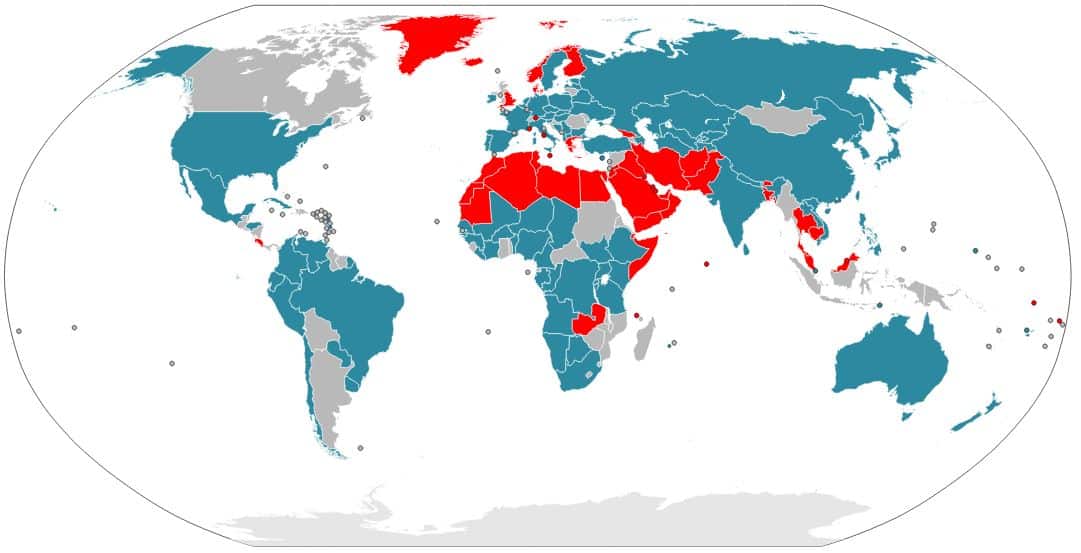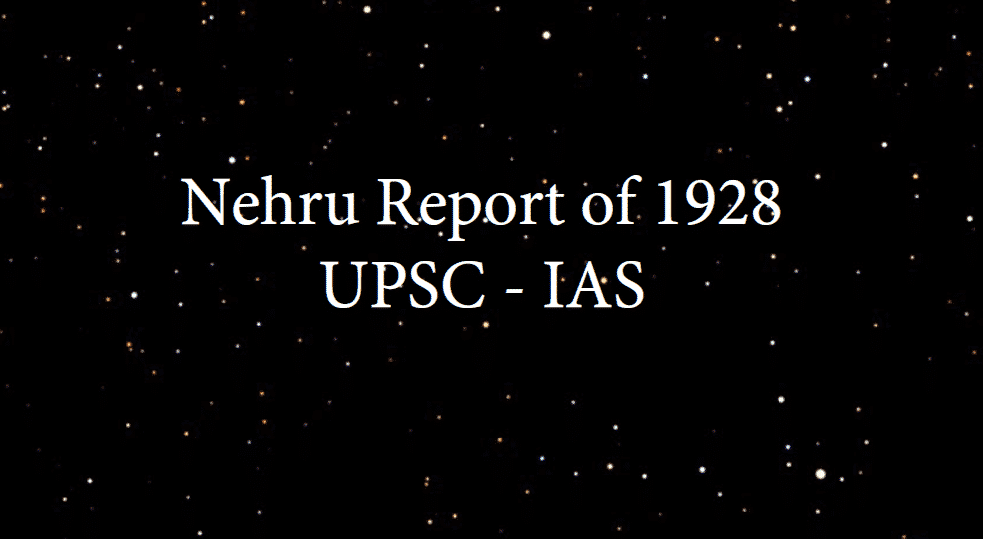Blue – No official religion | Red – States with Religion
Secularism in India – Features, Impact and Problems | UPSC – IAS
The concept of secularism as embodied in the Constitution of India cannot be viewed in the sense in which it is viewed in the West, but in the context of the following provisions of the Constitution:
The Constitution guarantees:-
- Freedom of conscience,
- Freedom to profess, practice and propagate religion and
- also Freedom to establish religious institutions and manage or administer their affairs.
- It prohibits discrimination on grounds of religion and
- Guarantees legal and social equality to all by providing for equality before law and Equal protection of laws, prohibiting discrimination with regard to places of public importance and
- Providing for equal opportunity in matters of public employment.
- The Constitution also guarantees religious minorities the right to conserve their script, language and culture.
The provisions would naturally indicate that the Constitution of India endeavors to build up in India the philosophy of secularism on freedom, equality and tolerance in the field of religion. And viewed in this context it is clear that the Constitution does not build a wall of separation between the state and religion.
Thus, the distinguishing features of a secular democracy as contemplated by the constitution are:
- That the state will not identify itself with or be controlled by any religion;
- While the state guarantees to everyone the right to profess whatever religion one chooses to follow (which includes also the right to be an agnostic or an atheist), it will not accord any preferential treatment to any of them;
- That no discrimination will be shown by the state against any person on account of his religion and faith;
- That the right of every citizen, subject to any general condition to enter any office under the state will be equal to that of his fellow citizens.
Although the term secularism was not in the original text of the Constitution, secularism was a subject of animated discussion when the Constituent Assembly look up for consideration the provisions dealing with the freedom of religion.
Indian Constitution the Supreme Court observed: “There is no mysticism in the secular character of the state. Secularism is neither anti-God nor pro-God; it treats alike the devout, the agnostic and the atheist. It eliminates God from the matter of the state and ensures no one shall be discriminated against on the ground of religion.
Basic outline of the secularism is enshrined in the following Articles of the Constitution:
- Preamble: It is true that the word ‘secular’ did not first occur either in Article 25 or 26 or in any other Article or Preamble of the Constitution. But the Constitution (42nd Amendment) Act, 1976, the Preamble was amended and for the words ‘Sovereign Democratic Republic‘ the words ‘Sovereign, socialist, secular, Democratic Republic’ were substituted.
- No State Religion.
It follows from that:
- No religious instruction shall be provided in any educational institution wholly run by state funds.
- Even though religious instruction is imparted in educational institutions recognised by state or receiving aid from the state, no person at lending such institution shall be compelled to receive that religious instruction without the consent of himself or of his guardian. In short, while religious instruction is totally banned in state-owned educational institutions, in other denominational institutions it is not totally prohibited but it must not be imposed upon people of other religions without their consent (Article 28).
- Freedom of Conscience: Every person is guaranteed the freedom of conscience and the freedom to profess, practice and propagate his own religion, subject only:
- to restrictions imposed by the state on the interest of public order, morality and health.
- to regulations or restrictions made by state relating, to any economic, financial, political or outer secular activity which may be associated with religious practice, but do not really related to the freedom of conscience;
- to measures of social reform and for throwing open of Hindu religious institutions of a public character to all classes and sections of Hindus.
Freedom to Manage Religious Affairs:
- To establish and maintain institutions (or religious and charitable purposes.
- To manage its own affairs in matters of religion;
- To own and acquire movable and immovable property; and
- To administer such property in accordance with law (Article 26)
Conclusion| UPSC IAS
- Secularism has to play a decisive role at present stage of Indian democracy.
- It is so because today when the Indian democracy seems to face the challenge of narrow divisive trends and tendencies, a rational and scientific approach which is the basis of secularism has become a matter of utmost importance.
- Communal disturbances which have distinguished the public life in the recent past, as well the birth and growth of narrow and divisive trends and obscurantist theories are mainly the result of ignorance can be fought not by legislation alone, nor by a negative fiat alone, but by education, and in the process of educating the traditional Indian mind, secularism and all that it stands for the political leaders have to play a major role.











